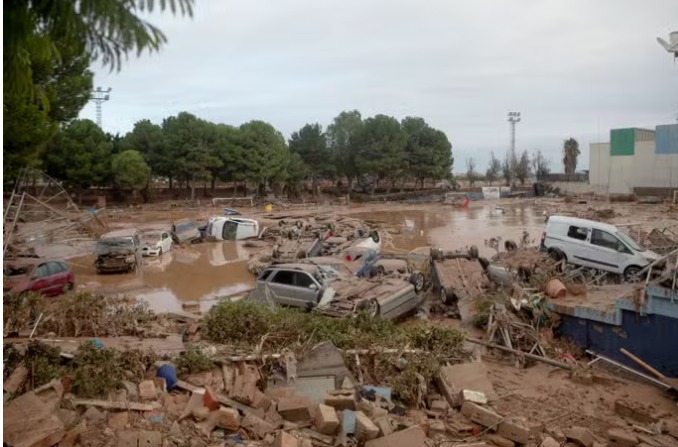Some Regions of the World Are More Vulnerable to Climate Change: The Case of the Mediterranean Basin
Certain regions are disproportionately exposed to climate change and face an even more alarming future. The Mediterranean basin is one such region, warming 20% faster than the global average. At COP29 in Azerbaijan, Piero Lionello from the University of Salento and Mohamed Abdel Monem, a climate and rural development consultant, highlighted this on Monday, November 18. Invited by the Union for the Mediterranean (which brings together the European Union and 16 Mediterranean countries), they presented two reports coordinated by the MedECC network (Euro-Mediterranean Climate and Environmental Scientists Network), compiling contributions from 55 scientists across 17 countries.
One report examines the impacts of climate evolution on this region, home to over 540 million people, while the other focuses on the water-energy-food-ecosystem nexus, exploring the cascading implications connecting these sectors. “All the consequences of climate change are clearly visible: warming, less available freshwater… And our current problems are minor compared to what lies ahead if we continue emitting greenhouse gases at the same rate,” warns Piero Lionello.
The devastating images of Valencia, Spain, flooded by apocalyptic rains in late October, are still fresh in memory. Experts stress that population growth along Mediterranean coastlines is accelerating faster than in inland areas, with one-third of inhabitants living close to the coast. While population numbers in northern Mediterranean countries may decline, significant growth is expected in the Middle East and Maghreb. By 2100, up to 20 million people may need to relocate permanently, the authors estimate.
The culprits include an increase in extreme events (droughts and torrential rains), rising sea levels, and overall environmental degradation. The drainage of over 160 coastal rivers and the disappearance of about half of the region’s coastal wetlands during the 20th century directly impact coastal zones, as these ecosystems play vital roles in water absorption and sediment delivery.
General Deterioration
In the Mediterranean, the frequency and intensity of centennial extreme events (which have a 1% chance of occurring annually) could increase by 10% to 30% by the mid-21st century, even if emissions are reduced to limit warming to 1.5°C. Iconic sites and infrastructure are at risk. For example, three major airports are among the 20 most vulnerable to coastal flooding worldwide: Corfu (Greece), Pisa, and Venice (Italy).
The entire Mediterranean region faces accelerated deterioration. Coastal erosion could push shorelines back between 17.5 and 23 meters by 2050 compared to 2010. Saltwater intrusion into aquifers threatens freshwater resources and soil quality. Air temperatures in the Mediterranean region are projected to rise compared to the 1850–1900 period by an average of 2.1°C between 2041 and 2060, with an additional 2.2°C increase by 2081–2100 under the most optimistic emission scenarios — and much higher with sustained emissions.
The state of the Mediterranean Sea itself is equally concerning. In their policy brief, scientists detail a long list of challenges. Not only is the sea level rising, but its water is acidifying rapidly, and its fish stocks are overexploited. Marine heatwaves, which have become 40% more frequent and 15% longer in the past two decades, have caused mass die-offs of corals, sponges, mollusks, and echinoderms. These heatwaves also promote pathogen infections and likely jellyfish blooms, exacerbated by the heavily polluted waters.
The « Great Blue » is now widely contaminated with plastic. This petroleum derivative accounts for nearly 100% of floating debris and over 50% of debris on the seabed. Two-thirds of this waste originates from rivers and human activities. The Mediterranean also suffers from other pollutants: agricultural nitrates, untreated wastewater, heavy metals, mercury in large predatory fish, particulate and gaseous emissions from maritime traffic, and more.
This cocktail of pollutants, coupled with warming, threatens human health, water quality and quantity, energy production, agricultural yields, aquaculture, and fisheries. Olive, grape, cereal, and vegetable harvests are already affected, putting the Mediterranean region’s food security at risk.


